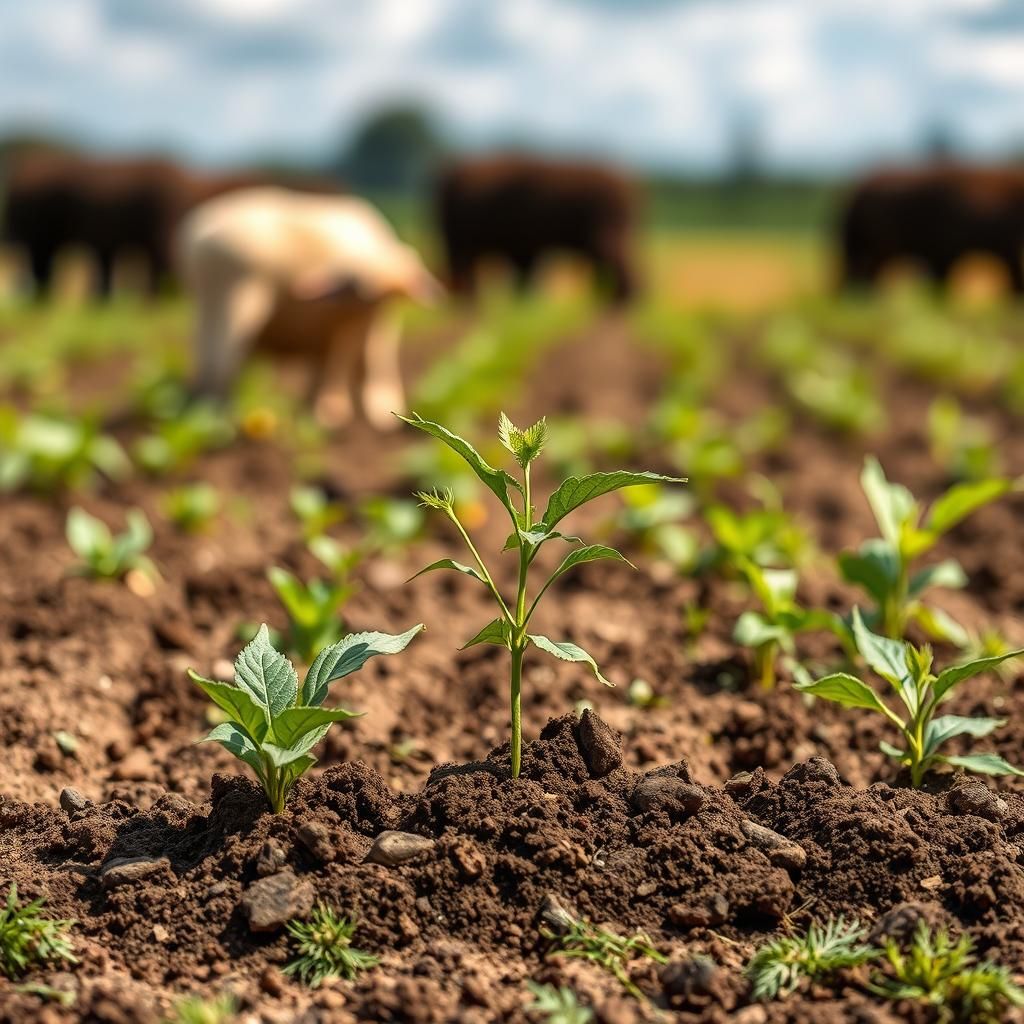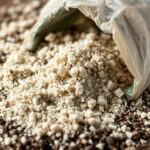When Should You Not Use Manure? Key Considerations for Effective Soil Management

Manure is often touted as a valuable resource for enriching soil and promoting plant growth. However, there are specific situations where its use may be detrimental rather than beneficial. Understanding the conditions under which manure should not be applied is crucial for effective soil management. This article explores key considerations that farmers and gardeners must take into account, such as soil type, crop needs, and environmental factors, to ensure that manure application supports sustainable practices without compromising soil health or contaminating water sources. By making informed decisions, we can maximize the benefits of manure while minimizing its potential drawbacks.
When Should You Avoid Using Manure?
Using manure can greatly benefit soil and plant health, but there are specific situations when its application should be avoided. First and foremost, if the manure is not properly composted or aged, it can harbor harmful pathogens and weed seeds that could compromise plant vitality and soil quality. Additionally, applying manure during the rainy season or on overly saturated soils can lead to nutrient runoff and environmental pollution. Furthermore, if the crops intended for harvest are unable to tolerate high nutrient loads or have a short growing season, utilizing manure could result in excess nitrogen, leading to poor crop performance. It's critical to assess the timing, soil condition, and crop type before applying manure to ensure the best outcomes for both agricultural practices and environmental integrity.
Improperly Composted Manure
If manure is not adequately composted, it may contain harmful pathogens and weed seeds that can adversely affect soil health and crop productivity. Proper composting allows beneficial microbes to break down nutrients and eliminate harmful organisms. Without this process, applying fresh manure could introduce diseases to plants and reduce overall yield.
Heavy Rainfall or Saturated Soils
When soils are overly saturated or experiencing heavy rainfall, applying manure can lead to nutrient runoff. This runoff can pollute nearby water bodies, causing harmful algal blooms and damaging aquatic ecosystems. Therefore, it is essential to monitor weather conditions and soil moisture before deciding to use manure.
Crops with Short Growing Seasons
Certain crops with short growing seasons may not benefit from the high nutrient levels provided by fresh manure. If applied too late in the season, these crops may not utilize the nutrients effectively, resulting in an excess of nitrogen that could lead to nutrient imbalances and negatively affect yields.
See also:
Soil Testing and Nutrient Management
Conducting soil tests before applying manure is crucial for effective nutrient management. These tests determine the existing nutrient levels in the soil, allowing farmers to make informed decisions about whether manure is necessary or beneficial. Ignoring soil conditions can lead to over-fertilization, which can harm plants and degrade soil quality.
Regulation and Environmental Concerns
Various regulations and environmental concerns dictate when manure should not be used. Many regions have specific laws aimed at preventing water pollution and protecting public health. Familiarity with local guidelines ensures that farmers apply manure responsibly, mitigating potential environmental risks associated with improper usage.
| Reason | Details |
|---|---|
| Improperly Composted Manure | Can introduce pathogens and weed seeds to soil. |
| Heavy Rainfall or Saturated Soils | Can cause nutrient runoff, leading to water pollution. |
| Crops with Short Growing Seasons | May not benefit from delayed nutrient availability. |
| Soil Testing | Essential for determining nutrient needs and preventing over-application. |
| Regulation Compliance | Must adhere to local laws to protect the environment and public health. |
Understanding the Risks of Manure Application
When considering the use of manure, it is crucial to evaluate the potential risks associated with its application. Inappropriate use can lead to nutrient runoff, resulting in water contamination that can harm aquatic ecosystems. Moreover, applying manure during periods of heavy rainfall or on saturated soils can exacerbate these issues. Understanding the timing and method of application, alongside the specific needs of the crops and the existing soil health, is essential for effective soil management. Prioritizing these considerations will help to maximize the benefits of manure while minimizing the potential negative impacts on the environment.
Identifying Inappropriate Conditions for Manure Use
Certain conditions should signal caution when considering manure application. Factors such as wet soils, slopes, and proximity to water bodies increase the risk of nutrient runoff and ecological damage. Understanding the characteristics of the land and current weather conditions is vital in determining whether manure should be applied. Additionally, some soils may already be saturated with nutrients, making further application unnecessary and potentially harmful.
Assessing Nutrient Needs of Crops
Before applying manure, it is essential to assess the nutrient needs of the specific crops being cultivated. Different crops require varying amounts of nutrients, and over-application can lead to imbalances in soil health and nutrient leaching into waterways. Conducting soil tests to determine existing nutrient levels can provide valuable insights, ensuring that manure is only used when it can genuinely enhance soil fertility without causing adverse environmental effects.
See also:
Timing of Manure Application
The timing of manure application plays a crucial role in minimizing the risk of nutrient loss. Ideally, manure should be applied during the growing season when crops can effectively utilize the nutrients. Applying manure too close to harvest time or during rainy seasons can increase the potential for nutrient runoff and reduce the effectiveness of the application. Understanding the growth stages of crops and local climate patterns will aid in optimizing the timing.
Evaluating Soil Health and Structure
Assessing the overall health and structure of the soil is imperative before applying manure. Poorly structured soils or those with a history of erosion may not benefit from the additional nutrients that manure provides. In such cases, it is crucial to implement soil improvement practices first, to establish a resilient soil structure that can utilize the nutrients from manure efficiently without contributing to sedimentation and pollution in nearby water bodies.
Impact of Manure on Soil Microbial Communities
The application of manure can significantly influence soil microbial communities, which play a crucial role in nutrient cycling and overall soil health. In some cases, excessive or inappropriate use of manure may disrupt these communities, leading to decreased biodiversity and negative impacts on soil function. To ensure that the microbial balance is maintained, it is essential to adopt a conservative approach to manure application, focusing on maintaining healthy microbial populations while providing necessary nutrients for plant growth.
Questions from Our Readers
When should you not use manure immediately after application?
Using manure immediately after application can be problematic due to its potential for nutrient runoff. If there is rain shortly after spreading manure, the nutrients can wash away before they can be absorbed by the plants. This is especially critical in areas with loose or sandy soil, where runoff can lead to water pollution and nutrient loss.
Are there specific weather conditions that make manure application inadvisable?
Yes, applying manure is not advisable during heavy rainfall or high winds. Wet conditions can cause soil compaction and run-off, while high winds can affect the distribution of the manure, leading to uneven application and higher emissions of ammonia and other gases that can impact air quality.
See also:
Should manure be avoided in certain soil types?
Certain soil types, such as clay soils that retain water, may not be suitable for manure application due to the increased risk of nutrient leaching. In these soils, nutrients can easily become saturated and promote conditions that lead to water pollution and reduced plant growth.
Is it recommended to use manure during specific growth stages of crops?
Applying manure during the beginning stages of crop growth can be detrimental if the plants are not yet established to utilize the nutrients effectively. It is best to avoid manure application until plants can adequately absorb the nutrients to prevent potential nutrient burn or other growth issues.

If you want to read more articles like When Should You Not Use Manure? Key Considerations for Effective Soil Management, we recommend you check out our Soil category.
Leave a Reply
Related Articles